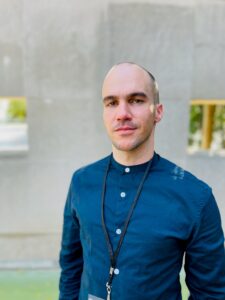About the Roundtable
Most Cold War historians, Southeast Asia area studies specialists, and International Relations scholars who have examined the Third Indochina War conclude that the United Nations and rapprochement among the great powers definitively forged its political settlement in 1991. By comparison, many regard the impact that Southeast Asian regional organizations, notably ASEAN, had on conflict resolution as inconsequential. Moreover, ASEAN member states, particularly Indonesia, are seen as bit players in contributing to comprehensive conflict resolution to the Cambodian crisis that split the region into two spheres (non-communist ASEAN vs. communist Indochina) for a decade and a half. Nevertheless, the Third Indochina War proved the first significant stress test for ASEAN and tested its mettle, cohesion, and utility unlike anything previously in its fledgling history. Drawing from the speaker’s recently completed dissertation, this guest lecture trains a regional-centric emphasis on the myriad roles and impact of Indonesian multi-track diplomacy within and outside of its ASEAN membership to contribute to comprehensive conflict resolution at regional and international forums. Indonesian state and non-state actors played a leading role in driving ASEAN regional-centric diplomacy through their numerous actions within the organization and through their “free and active” (bebas aktif) foreign policy blueprint. This presentation accentuates the significance of Southeast Asian regional-centric diplomacy in enabling Global North actors to end the Third Indochina War, thereby setting Southeast Asia on a more peaceful trajectory as it entered the post-Cold War period.
About the Speaker
 Dan McCoy earned his Ph.D. in History from Northern Illinois University in August 2025. After completing his degree, he undertook a research fellowship through the Center of Muslim Politics and World Society at the Indonesian International Islamic University in Depok, West Java. Dan used his research fellowship to commence his next project, examining how the Asian Cold War ended and the Asia-Pacific transitioned into the post-Cold War era via the development and impact of trilateral normalization between Indonesia, Vietnam, and China. With Indonesia as his principal country of focus in Southeast Asia, McCoy’s research situates itself in the evolving Cold War historiography that decenters the U.S. and U.S.S.R. and focuses instead on regional initiative and agency within Southeast Asia orchestrated by political figures, public intellectuals, and military strategists on behalf of Southeast Asia. His work has appeared in such publications as the Journal of American-East Asian Relations and H-Diplo|Robert Jervis International Security Studies Forum. His research interests include the evolution of ASEAN institutionalism and ASEAN regionalism, Cold War geopolitics and security studies in the Asia-Pacific, the New Order period in Indonesia, and transnational conflict and peace studies across modern Southeast Asia. A former visiting fellow at the Centre for Strategic and International Studies in Jakarta, McCoy has won multiple research grants to Indonesia, including a Fulbright U.S. Student Research Grant (2022-23) that facilitated his doctoral fieldwork.
Dan McCoy earned his Ph.D. in History from Northern Illinois University in August 2025. After completing his degree, he undertook a research fellowship through the Center of Muslim Politics and World Society at the Indonesian International Islamic University in Depok, West Java. Dan used his research fellowship to commence his next project, examining how the Asian Cold War ended and the Asia-Pacific transitioned into the post-Cold War era via the development and impact of trilateral normalization between Indonesia, Vietnam, and China. With Indonesia as his principal country of focus in Southeast Asia, McCoy’s research situates itself in the evolving Cold War historiography that decenters the U.S. and U.S.S.R. and focuses instead on regional initiative and agency within Southeast Asia orchestrated by political figures, public intellectuals, and military strategists on behalf of Southeast Asia. His work has appeared in such publications as the Journal of American-East Asian Relations and H-Diplo|Robert Jervis International Security Studies Forum. His research interests include the evolution of ASEAN institutionalism and ASEAN regionalism, Cold War geopolitics and security studies in the Asia-Pacific, the New Order period in Indonesia, and transnational conflict and peace studies across modern Southeast Asia. A former visiting fellow at the Centre for Strategic and International Studies in Jakarta, McCoy has won multiple research grants to Indonesia, including a Fulbright U.S. Student Research Grant (2022-23) that facilitated his doctoral fieldwork.



 Add to Google calendar
Add to Google calendar
 Add to Outlook calendar
Add to Outlook calendar
